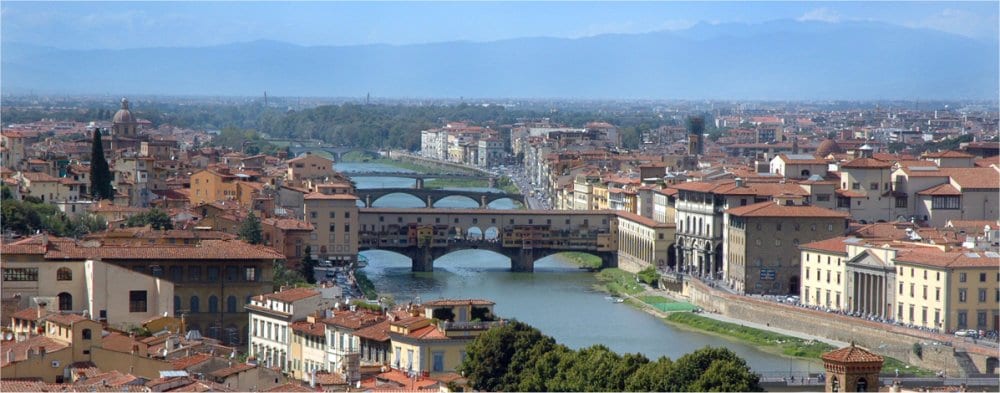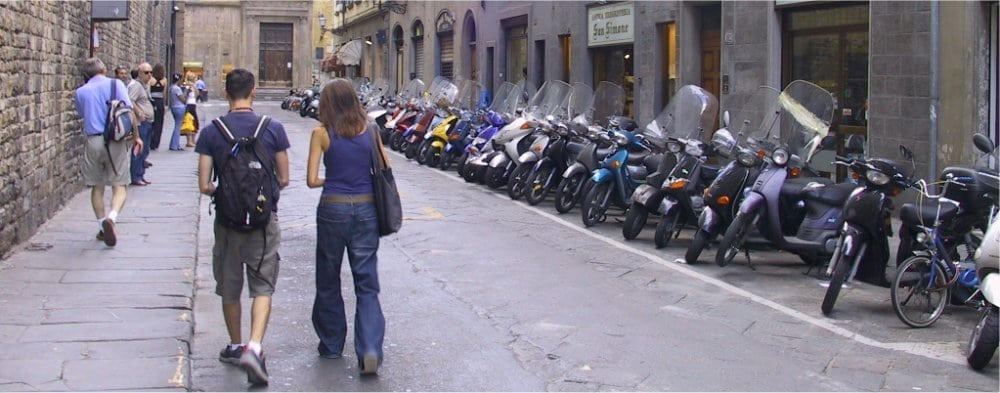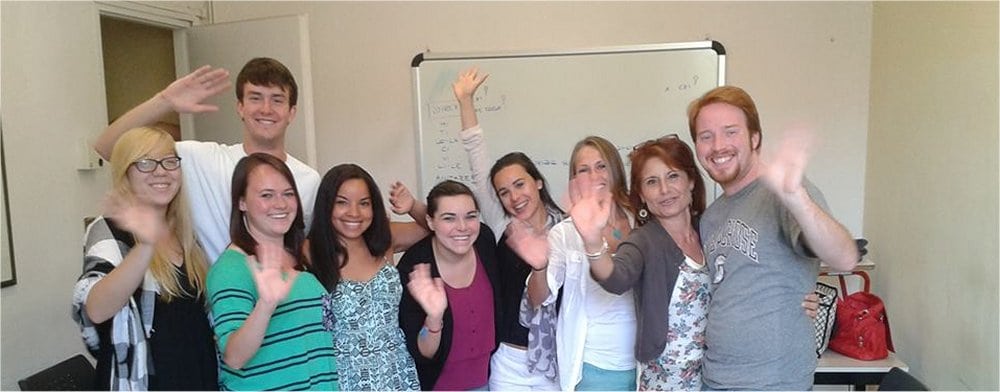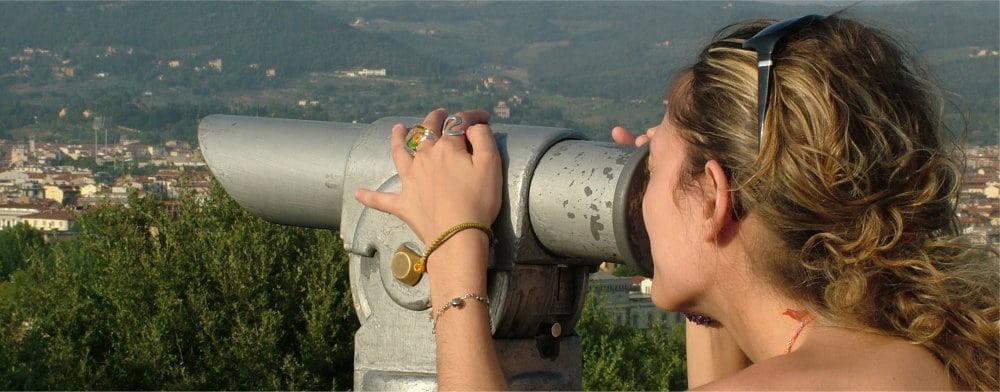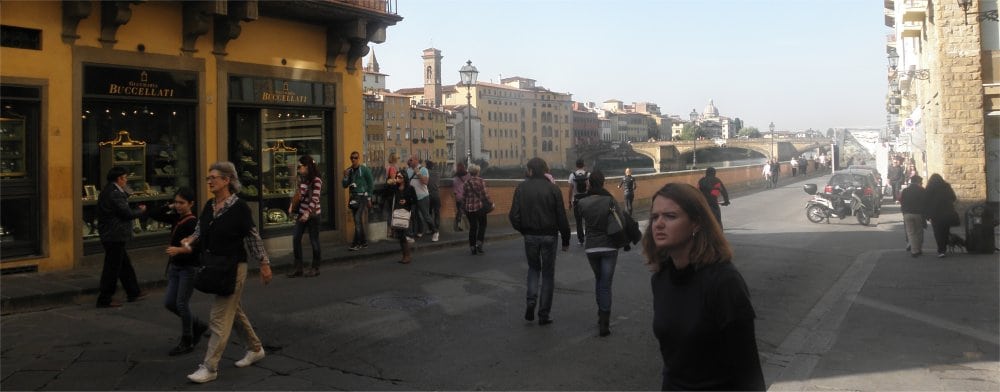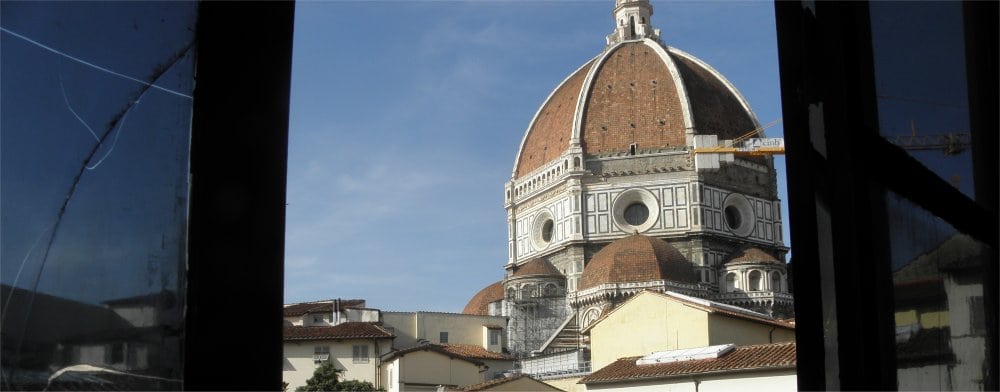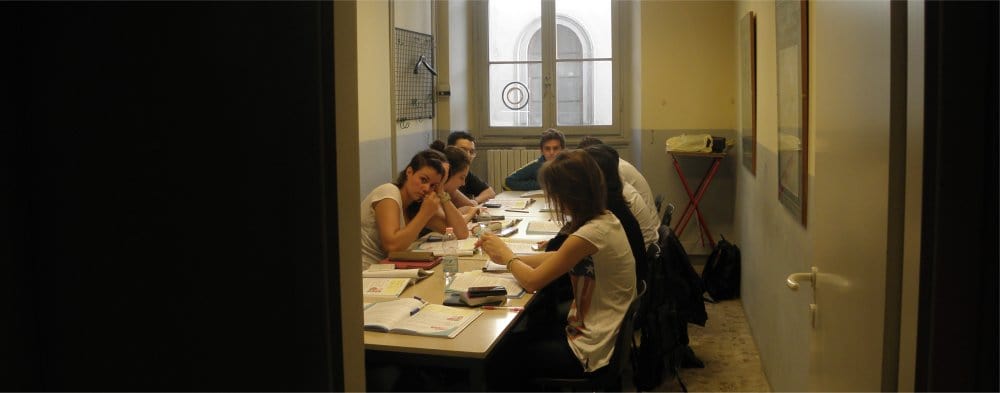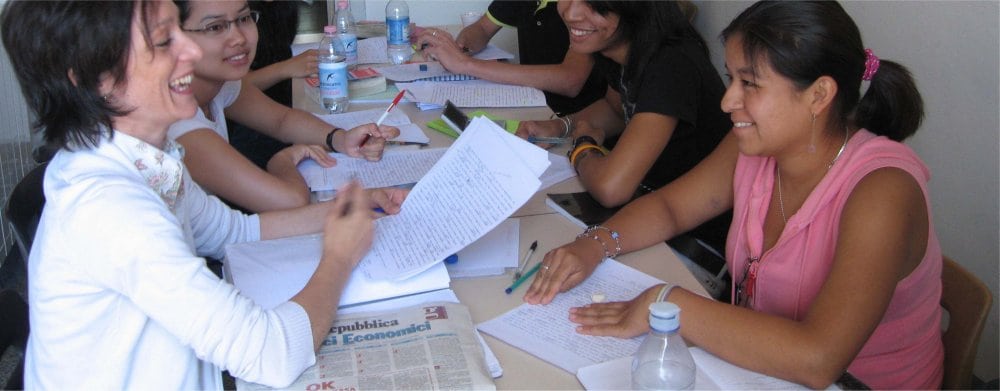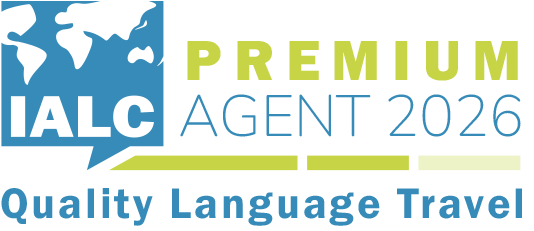Learn Italian in Florence: Teaching
Let’s get you speaking Italian in Florence!
Italian language ability / Rate of Progress
| School Levels | CEF | AILS Exam levels |
Weeks |
| Each level lasts 80 contact lessons, four contact lessons per day, five days per week, for four weeks. However at higher levels many students will take longer to complete the level. | |||
| Level I Beginner |
A1 | 4 | |
| Level II Elementary |
A2 | DELI A2 | 4 |
| Level III Intermediate 1 |
B1 | DILI B1 | 4 to 8+ |
| Level IV Intermediate 2 |
B2 | DILI B2 | 4 to 8 + |
| Level V Advanced 1 |
C1 | DALI C1 | 4 to 8 + |
| Level VI Advanced 2 |
C2 | DALI C2 | 4 to 8 + |
The daily lessons are divided into two parts, each taught by a different teacher:
Grammar / Conversation
The grammar lessons include grammar in the strict sense of the word, listening and writing comprehension exercises, the construction of sentences, and dialogues containing grammatical and phraseology structures on various topics.
Conversation includes exercises in written and oral comprehension, exercises in written and oral expression, situational exercises, role-playing, text analysis, etc. Audiovisual tools used include recorded dialogues, slides, songs and films.
Italian teaching methods in Florence
In the direct method used by the school, the grammar and texts are used so that the tutor/s can teach in Italian, certain of being understood without the aid of translations.
The courses proceed through mostly communication activities, with conceptual and functional elements of the language gradually introduced . Through a situational approach based on communication, the basic grammatical, phraseology and lexical structures are emphasized and practised so that the student progressively obtains the grammatical elements of the lesson and assumes automatic, precise and consistent linguistic behaviours.
Beginning from the most elementary daily communication needs, the material progresses to more complex cultural and existential situations. The themes used in the excerpts and readings are always selected in order to support and reflect the gradual learning of the morpho-syntactic forms and structures.
The learning strategy provides for the simultaneous development of the four fundamental linguistic skills, with the time dedicated to each of them varying according to the course level. In the elementary courses, emphasis is placed on written comprehension and oral comprehension and expression, while written expression is part of the curriculum only in the intermediate and upper levels.
The methodology of the elementary courses is mostly situational, with grammar and structures taught in a deductive way. In the intermediate and upper courses, grammar and structures are presented in an analytical way.
GRAMMAR SKILLS & VOCAB
This is the core part of the course in which students study the grammar, vocab and skills corresponding to each level as set out in the above syllabus. Course material is closely controlled so learning is organized and varied too.
CONVERSATION
As for most people this is both the most challenging and the most desirable skill, most of the courses contain this module which gives students the chance to train accessing new knowledge for active incorporation into their own speech.
PRIVATE TUITION
Participants can decide on the content of their private tuition themselves or ask their teacher to devise a programme most suited to their needs. All students taking private tuition are able to make specific requests in advance via CESA, so that their lessons can be planned accordingly.
End of Course Certificate
Certificates are awarded to students on the completion of their course, based on their attendance and rate of progress.
Levels and groups
To guarantee adequate progress, it is vitally important that students are placed in a group that corresponds with their knowledge of Italian. This is only possible if the language school guarantees groups of all levels of learning. After making a careful initial evaluation of each student’s ability, the Florence School follows up their placement with regular control testing.
Class Size
The maximum amount of students per group is fourteen. The average number of students per group is five/eight in low season and seven/twelve in high season, with a maximum of 14 students per class.
Class Duration
At the school in Florence, lessons run from Monday to Friday and are 45 minutes long.
Exam preparation
The school offers exam preparation courses according to the AIL
The specific preparatory courses always start one month before the examination dates and consist daily of 4 lessons of grammar review and conversation plus 2 lessons of test taking strategies and examination drills. Prices and dates can be found on the CESA Course Finder, or please download the PDF.
Accademia Italiana di Lingua (AIL)
The Accademia Italiana di Lingua (AIL) was founded in Florence, Italy in 1984. The AIL is non-profit organization comprised of schools, institutions and experts (both Italian and international) which operate within the field of certification. The AIL has twenty-two members to date.
The AIL created the various exams in order to certify the candidate’s effective knowledge of the modern Italian language. (Previously, the only available certification was the Diploma of the University of Perugia and the Certificate of the International Certificate Conference, but only at the intermediate level.) Unique to the AIL exams is the emphasis at every level on the aspects of both everyday and business-specific communication.
Each AIL exam centre offers preparation courses for each exam level which incorporate sample tests equipped with the audio cassettes for the listening portion of the exam.
There are five AIL Diplomas:
DELI – Basic Level
DILI – Intermediate Level
DILC – Intermediate Business Level
DALI – Advanced Level
DALC – Advanced Business
First Day
Arrival at school for everyone (whatever their language level): 08.30 hrs
Language level tests are held first thing to determine your placement. Beginner students will start their lessons at 09.00.
The class lists and timetables will be made available on the message board once the tests have been assessed. The students will start classes either in the morning or afternoon according to the schedule of the week. If the schedule of the class is in the afternoon, the student can join the City Tour organised for them in the morning. Every Monday the school offers to all students a guided tour to the important sights of Florence.
Sample Timetable for Standard Course
| Sunday | Arrival in Florence |
| Monday | Tests/ Lessons |
| Tuesday/Friday | Lessons |
| Saturday | Free day or excursion |
| Sunday | Free Day |
- 1 to 8 weeks course duration
- Open to 16 yrs + age group
- 20 group Italian lessons per week
- Max. 12 people per class
Open to all language levels (but specific start dates for beginners/false beginners) these courses concentrate on developing general language skills (speaking, listening, reading and writing) and are always held in Italian. These Italian language courses are aimed at those who need to build on current skills or who want to learn Italian in Florence, from scratch with an Italian immersion course.
| 20 lessons per week | |
| 09:00 – 10:30 | Lessons |
| 10:30 – 10:45 | Coffee break |
| 10:45 – 12.15 | Lessons |
| Or | |
| 14.15 – 15.45 | Lessons |
| 15.45 – 16.00 | Coffee break |
| 16.00 – 17.30 | Lessons |
Choice of timetable determined by School Staff according to student language levels, rather than student choice.
Please note the group programmes are designed to be followed for 2 weeks or longer duration (unless specifically stated otherwise) so whilst one week courses are possible, please discuss the pros and cons of this with CESA staff, prior to booking.
Florence School Teachers
All of the teachers are native Italians and trained as Italian teachers (generally 25 to 50 yrs of age). There are 10 teachers in the school, all trained to teach Italian as a foreign language. They use the Italian school syllabus, a tried and tested method developed based on personal experience and the vision of the school’s own teaching experts.
Florence School Students
Students come from all over the world, predominantly Western Europe, but also from as far afield as Australia, China, Japan, Mexico and the USA. Fundamentally, if you want to learn Italian – you’re welcome. Age wise there a lot of younger students (mainly 18 yrs to 25 yrs of age), but the oldest student to date was in their late 70’s and some 20% + of the student body last year were over 30 yrs of age, again everyone is welcome.
There are students that stay for one or two weeks and others who stay for 12 to 36 weeks. The longer you stay the better your Italian language skills will be!
